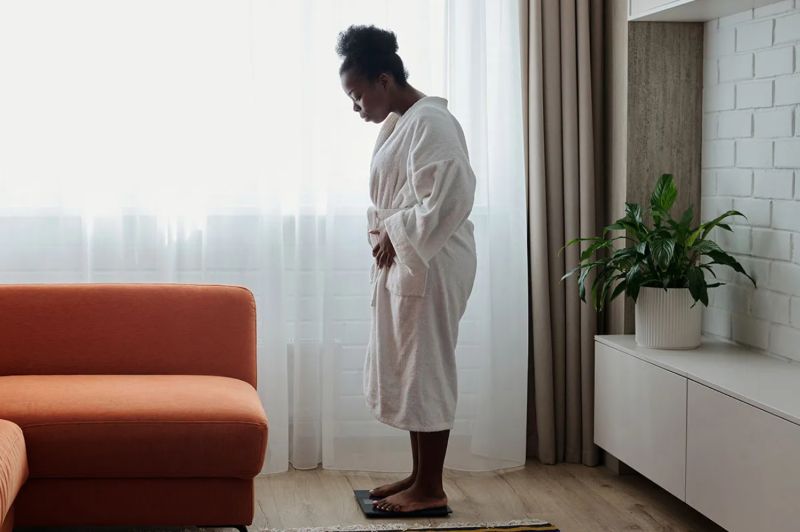
There are ways to manage exam anxiety so that it doesn’t hugely impact your performance.

By Dr. Christine Grové
Fulbright Scholar and Adjunct Senior Lecturer
Monash University
Introduction
Do you feel like your mind freezes during exams? Do you find yourself thinking “I really can’t do this”? Does your heart race fast or do you find it hard to breathe during exams?
Most people feel anxious when taking an exam, but research shows that some people are more likely to suffer from exam anxiety than others. So why is this? And what can you do to calm your nerves?
What Is Exam Anxiety?
Exam anxiety is the experience of feeling an intense moment of fear or panic before and/or during an exam or assessment.
There are two types of anxiety:
- Low anxiety: students who experience low anxiety may feel a little nervous about an upcoming exam but are still able to focus their attention on their studies or the questions asked during the assessment. Usually low anxiety students are not struck with intrusive thoughts or feel debilitated by the exam.
- High anxiety: students who experience high anxiety show an immediate anxiety reaction when exposed to the feared test situation. They attempt to avoid the situation by not showing up to the exam, or may endure it but with extreme fear. High anxiety can tip some into a sense of panic: “I just really can’t do this!”
Students with either high or low anxiety can respond to tests in different ways. But research shows that managing anxiety effectively can actually help with exam performance.
The challenge is to recognise when your anxiety has increased past an optimal level so that it starts to impact your ability to complete the exam – this is a high level of anxiety.
Some physical responses of high anxiety include a speeding heart, damp hands, shortness or rapid breath, and feeling queasy.
The physical response is usually experienced in high levels of anxiety when the “fight or flight” response is triggered. This is how our bodies respond to a perceived threat – and while uncomfortable, it is not harmful.
When Anxiety Is (And Isn’t) Useful
Anxiety can be useful in certain situations – for example, if you are in danger ( jumping out of the way of a car). It can also help to increase our attention to the threatening event and improve our response.
But it is not so helpful when the threat we are faced with is cognitive, like an exam.
The thoughts involved in exam anxiety usually include negative thinking about performance (also known as worry) and/or the physical reaction to thinking about the upcoming exam: “I’m going to fail”, “I quit”, “My heart is leaping out of my chest and I can’t focus.”
Impact of High Anxiety on Performance
Research has shown that people who experience high levels of anxiety in exams can also see their performance decline in evaluation situations.
These people tend to perceive exams as threatening and respond with intense emotional responses, making it difficult to focus on the task at hand.
Assessment situations also evoke worry responses that interfere with effective performance on cognitive and intellectual tasks. This then impacts on the person’s chance of performing their best on the exam.
Exam anxiety may also interfere with your ability to show your academic and cognitive capabilities.
So, How Can I Cool My Exam Nerves?
If you identify high anxiety in yourself, you can learn ways to manage it so that it doesn’t take over your exam performance.
The skills you find most helpful in managing your exam anxiety will vary depending on what triggers may be contributing to your high levels of anxiety.
If students experience high levels of anxiety before an exam, they should engage in self-care strategies during this time by keeping an eye on sleeping through the night, nutrition, exercise, and implementing a few relaxation routines.
Students sometimes forget these small steps as they can feel consumed by the fear of the exam.
Relaxation Training
Psychologists and well-being teams at school have a range of techniques to help manage test anxiety – and can also recommend ways to improve your study skills.
The goals of the techniques are to help students understand the nature of their anxiety so that they can cope more effectively with upcoming evaluations.
This may include behavioural intervention that aims to teach relaxation training like mindfulness.
Mindfulness is where a student tries to focus on the present moment, while calmly acknowledging and accepting their anxious feelings, thoughts, and physical reactions.
Relaxation training can be used alongside a process of systematic desensitisation – this is where a person visualises a scene while completely relaxed, and the mental image evokes some of the feelings of the real scene.
The idea is that if you learn to relax while visualising yourself taking the exam, you can also learn to be relaxed while actually taking the exam.
Support Through Special Consideration
Some students who experience high levels of anxiety (intense panic or fear about an exam that results in them being unable to do the test) can access additional support through special consideration at their school.
This varies based on the individual needs of the student. But some students may need access to a separate room to complete exams, regular breaks during the exam or more time.
To access this type of consideration, get in touch with your school’s wellbeing team or a psychologist (see resources below) to help develop an individualised plan for you during the exam season.
Learning to work through your exam anxiety can have a number of positive effects including:
- Improved academic performance
- Reduction in stress and distress
- Increased sense of control and confidence
- Decreased frustration
Tips for Coping with Exam Anxiety
When getting ready for exams try to:
- Prepare ahead of time by working on sections of the content each day
- Use practice exam papers as an opportunity to manage anxiety
- Identify your anxiety early by noticing your physical responses
- Try replacing unhelpful thoughts with more encouraging self-talk by challenging your worried and negative thoughts
- Practice focusing your attention on the task at hand (mindfulness), rather than getting tangled in your anxiety and thinking of the “what if?”
- Learn a few skills for reducing your physical reactions of anxiety
- Remember good self-care: pay attention to your sleep, nutrition, exercise, relaxation routines, and reach out for social support
Useful Links and Resources
You can also take a look at this exam anxiety booklet which aims to help you and your parents better understand exam anxiety.
You can read the booklet to help identify coping strategies that may help address your anxiety. Also, your parents could read this booklet with you and participate in identifying coping strategies.
If you would like to talk to someone right now about your exam anxiety and ask a few questions about individual support, contact (available 24/7):
- Kids Helpline – 1800 55 1800
- Headspace Online Counselling
- Reachout.com
Originally published by The Conversation, 10.29.2016, under the terms of a Creative Commons Attribution/No derivatives license.







